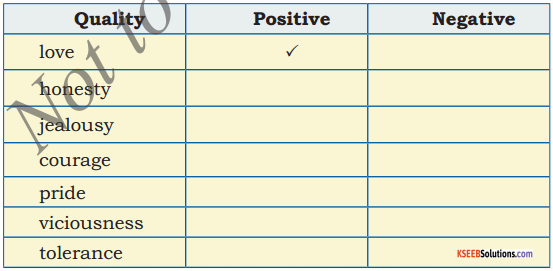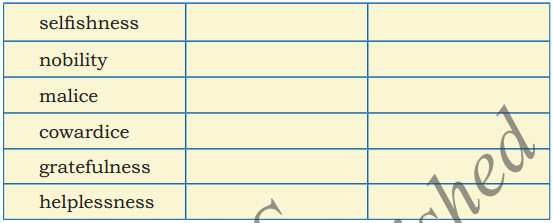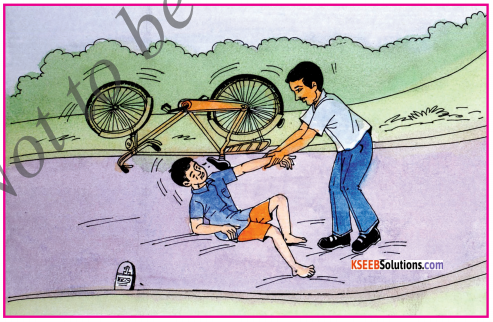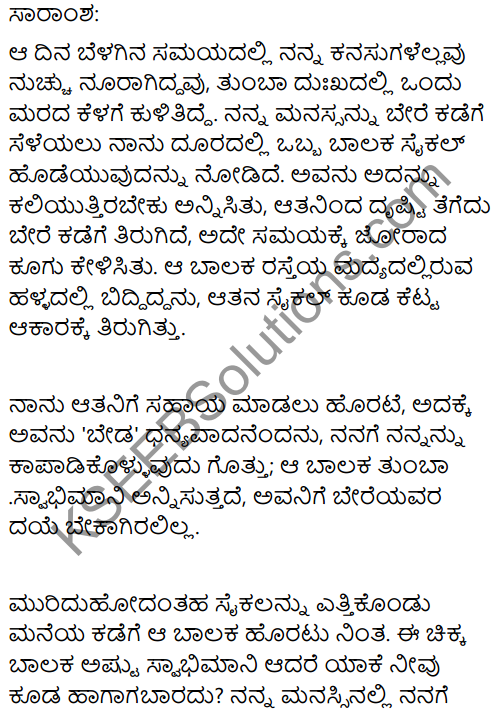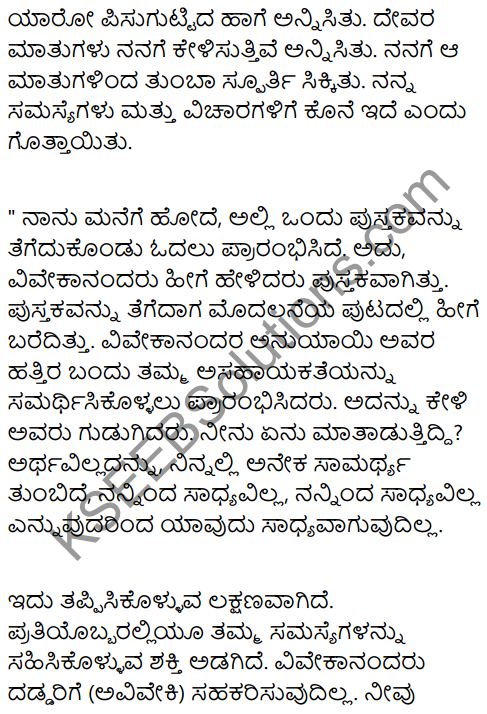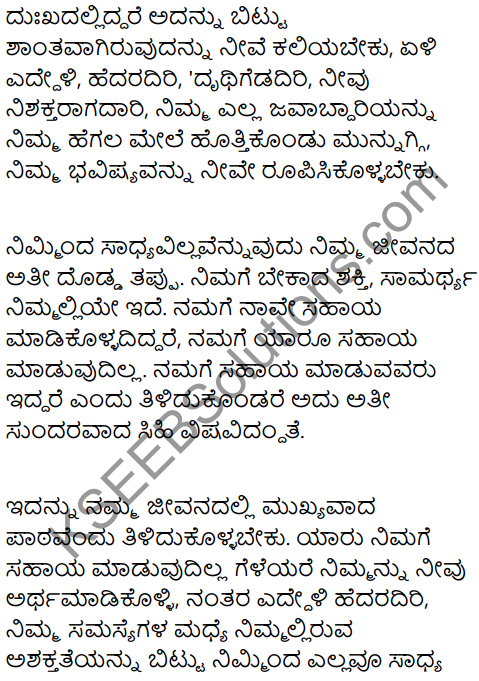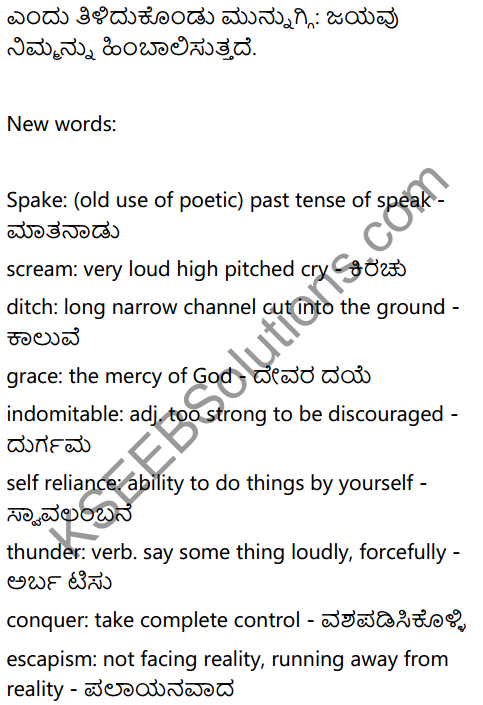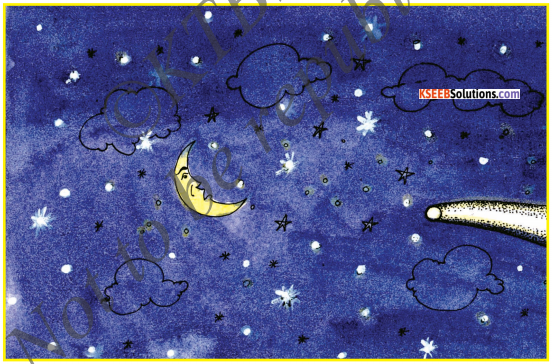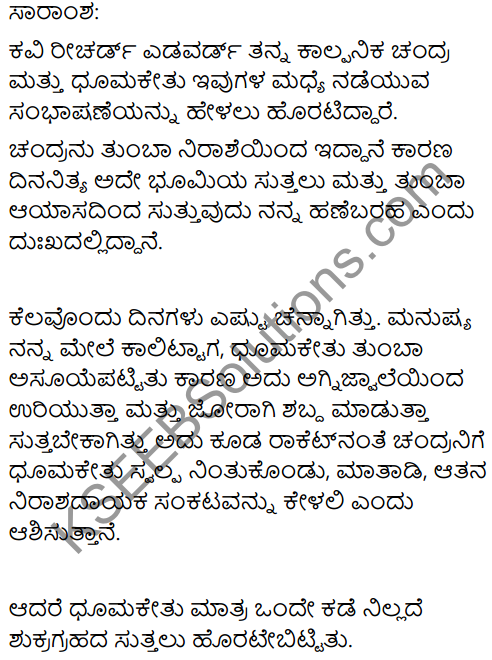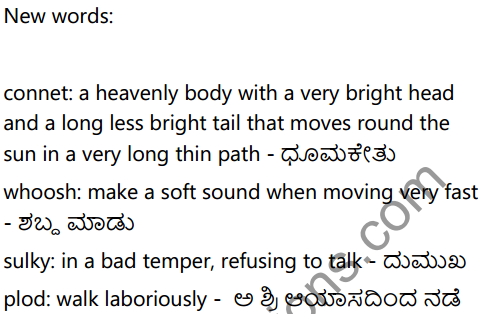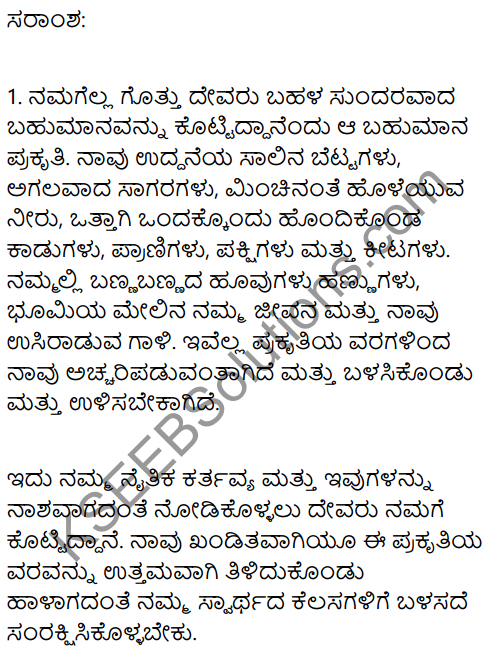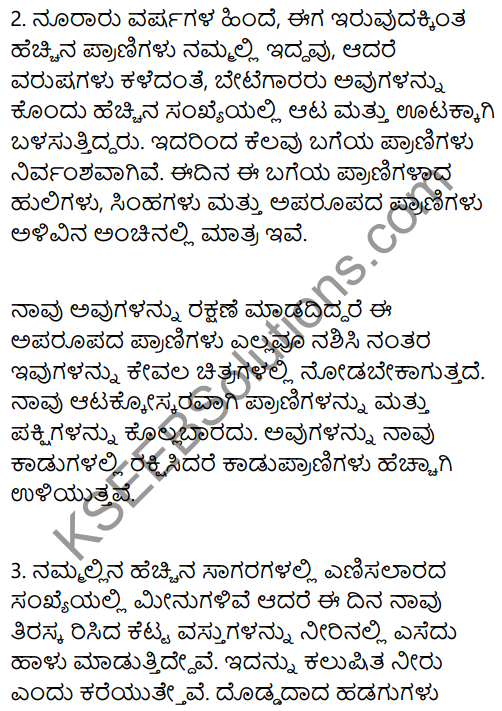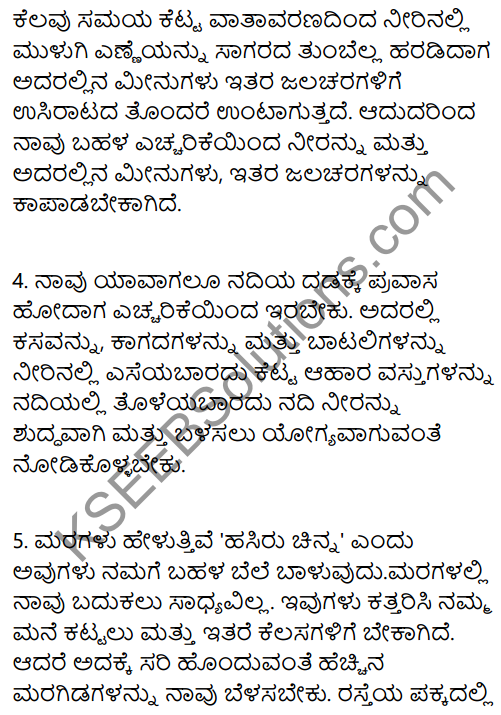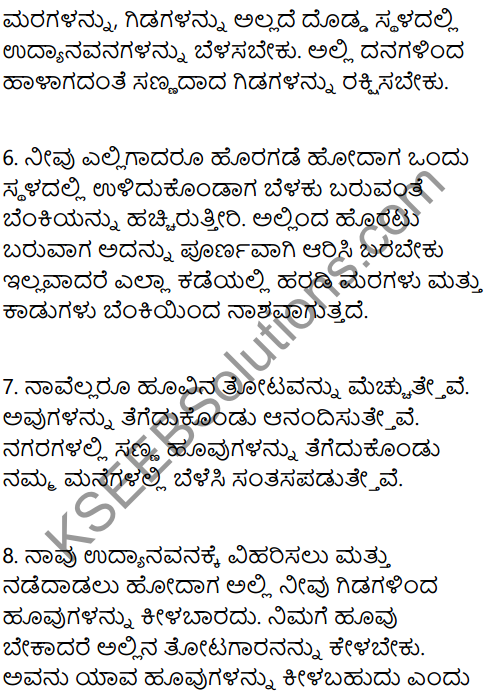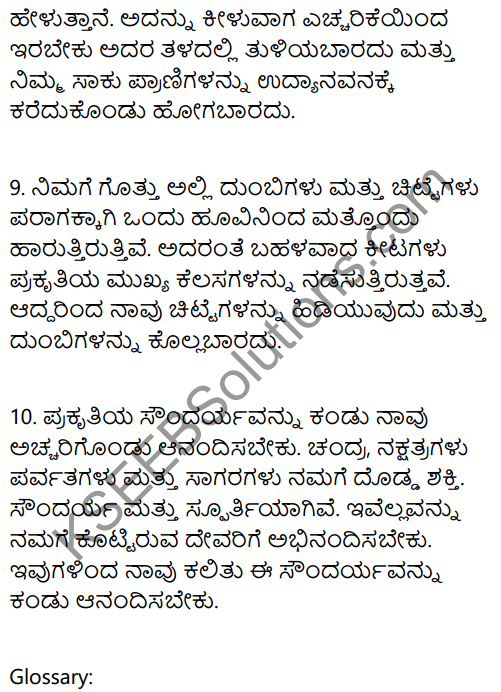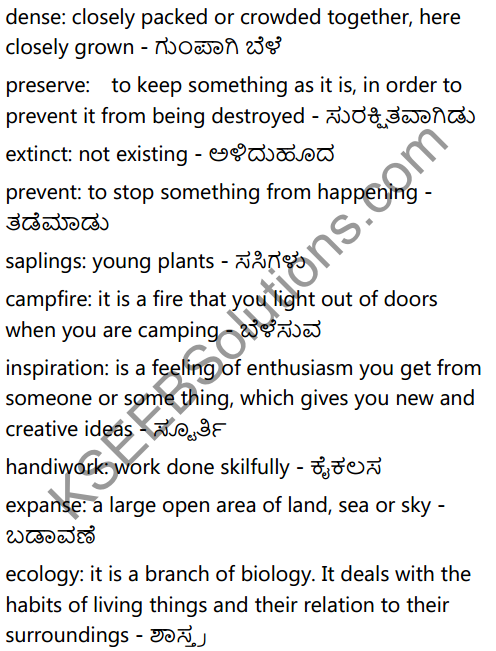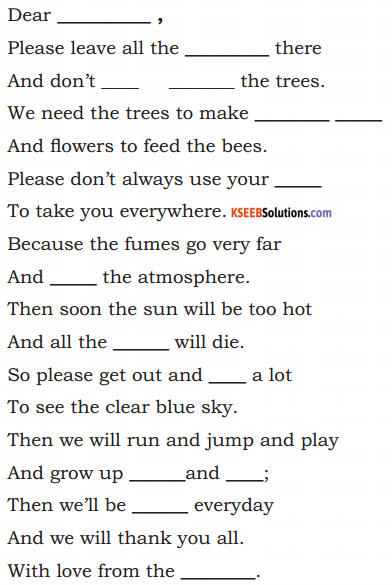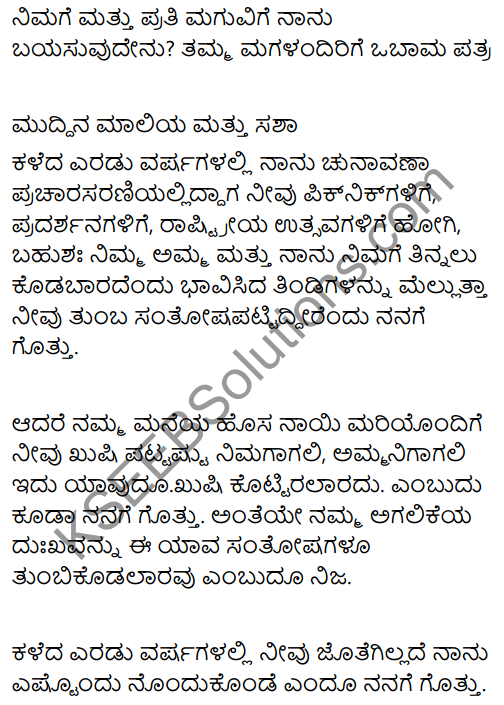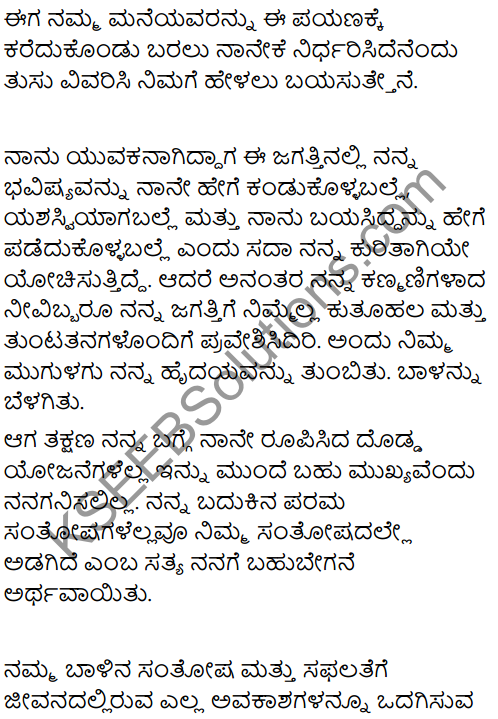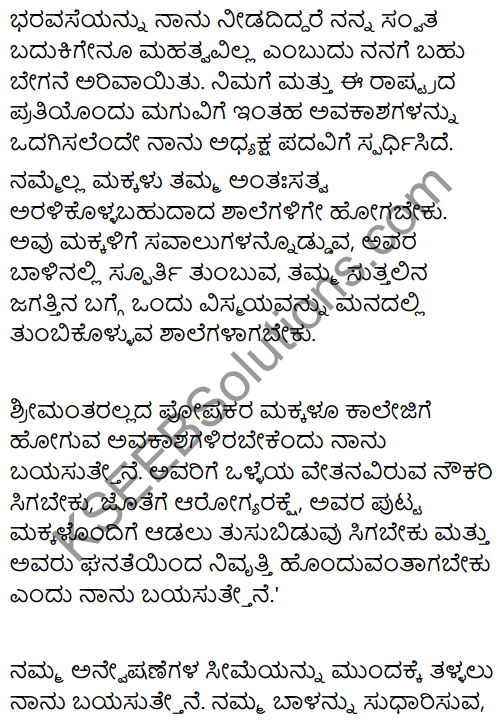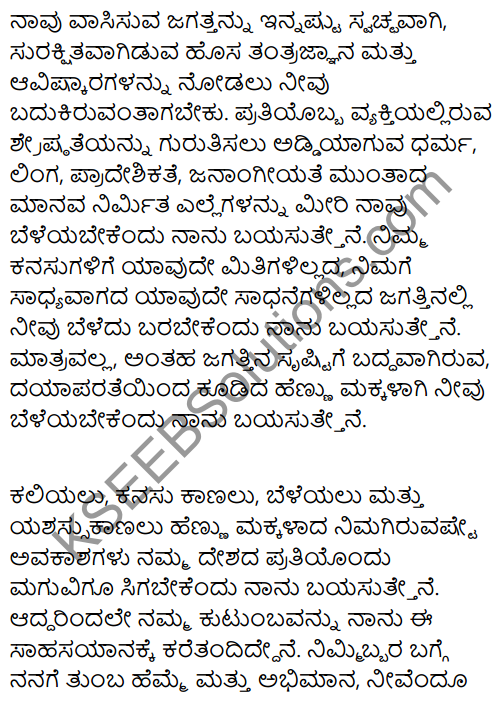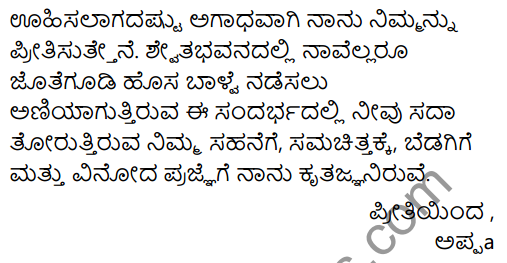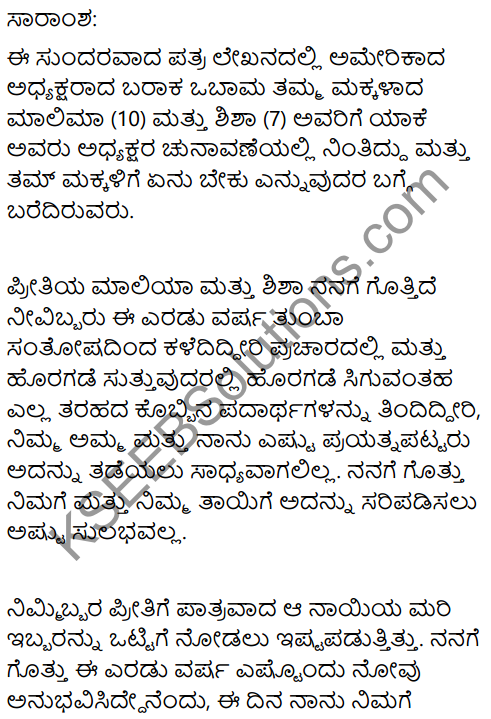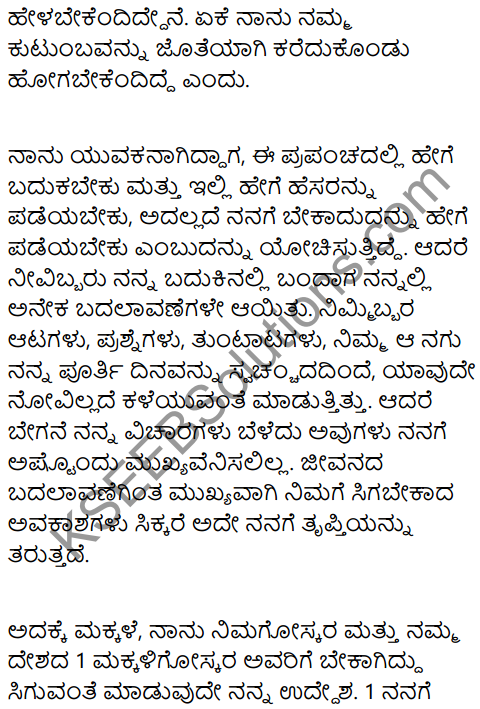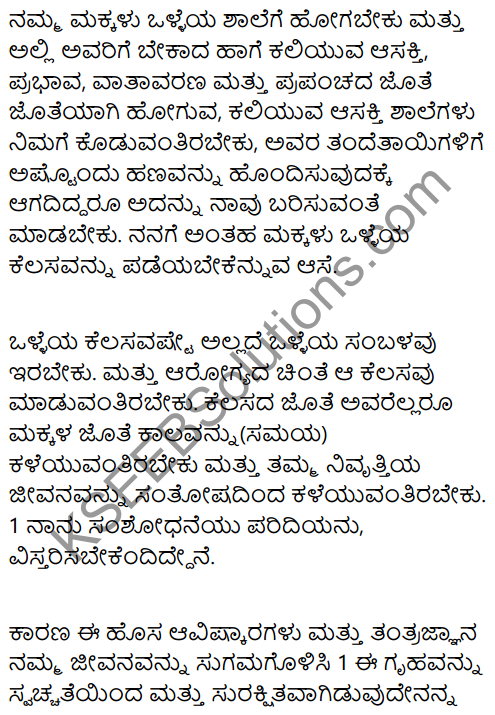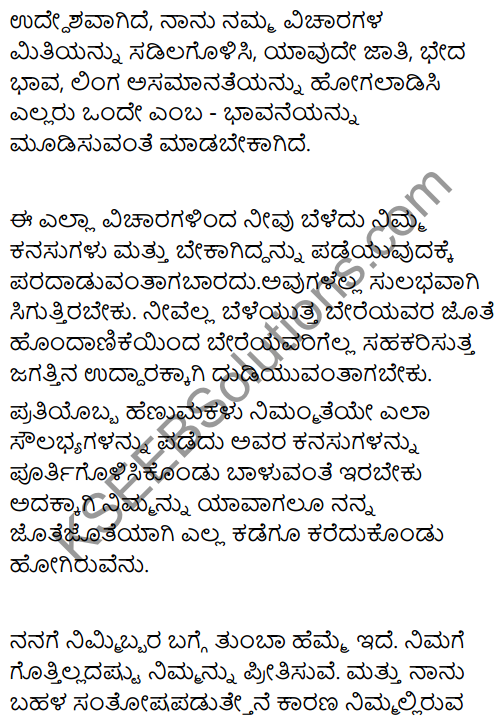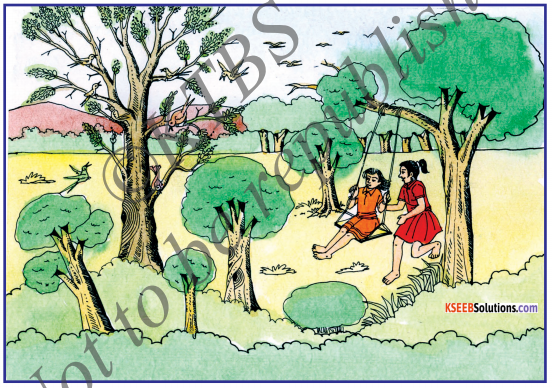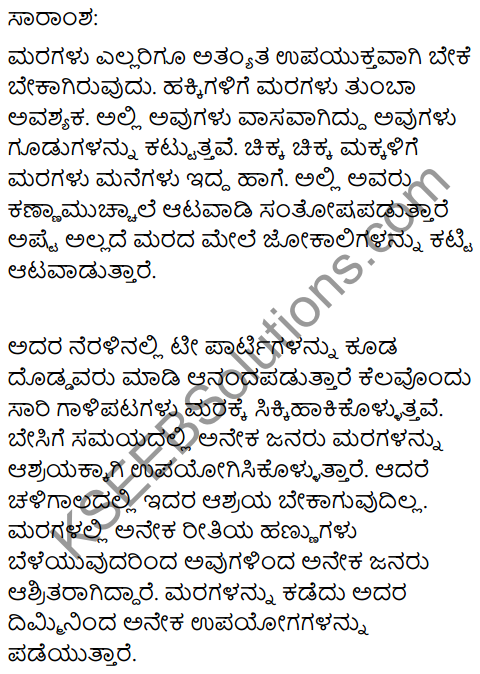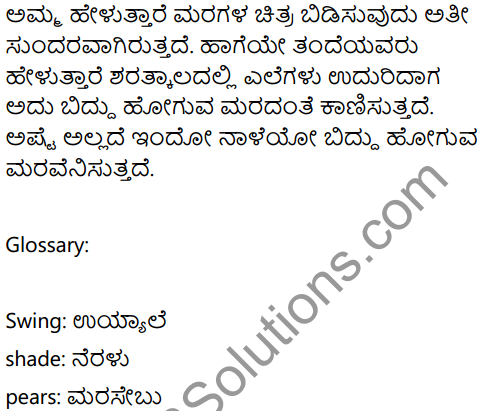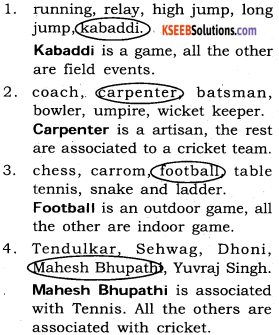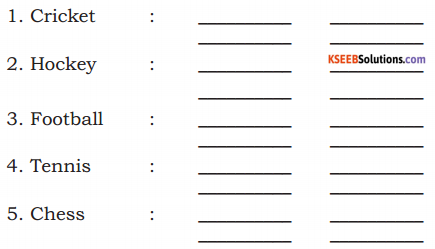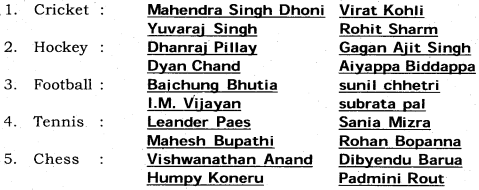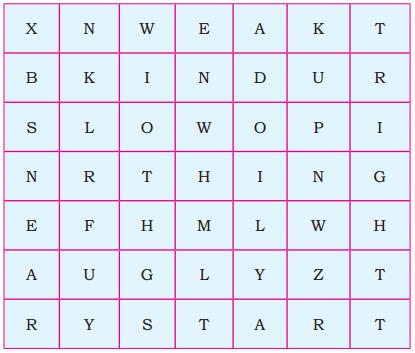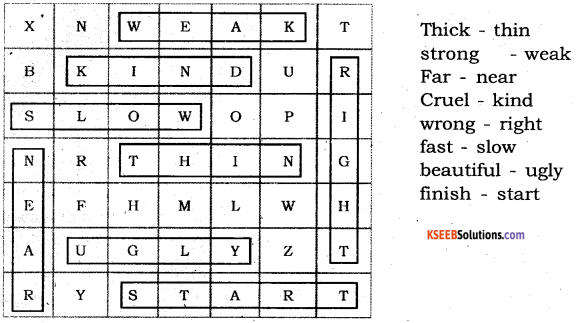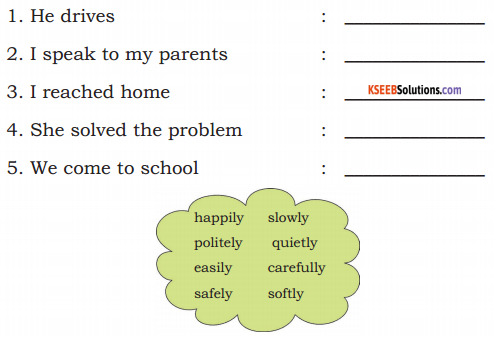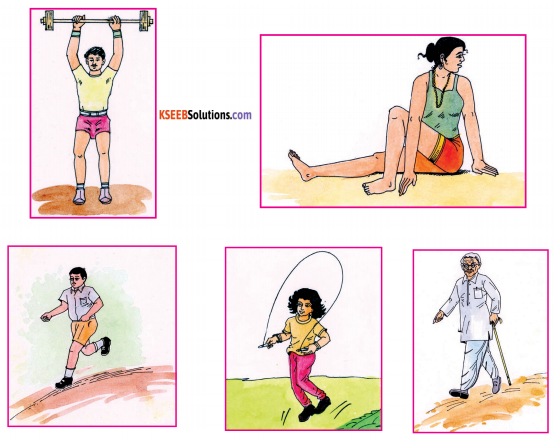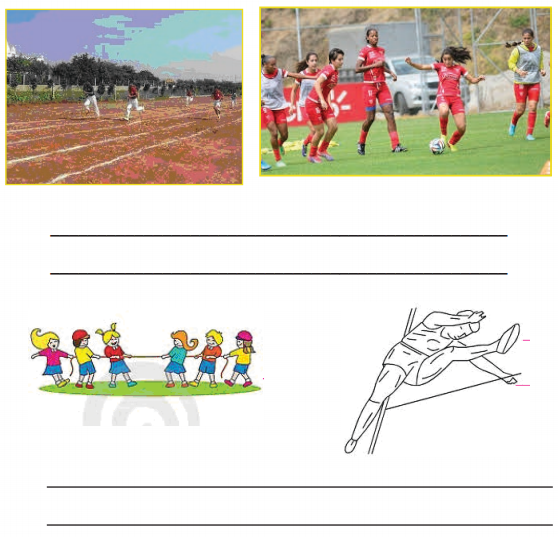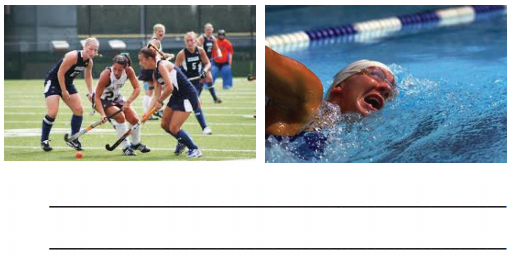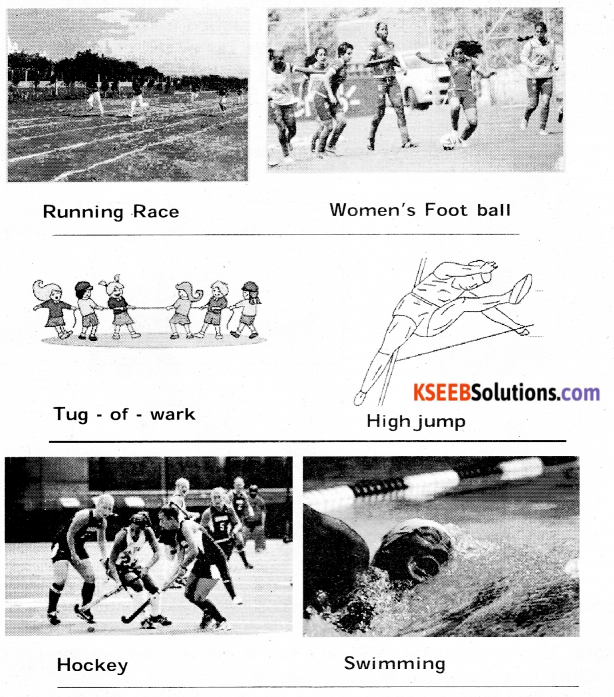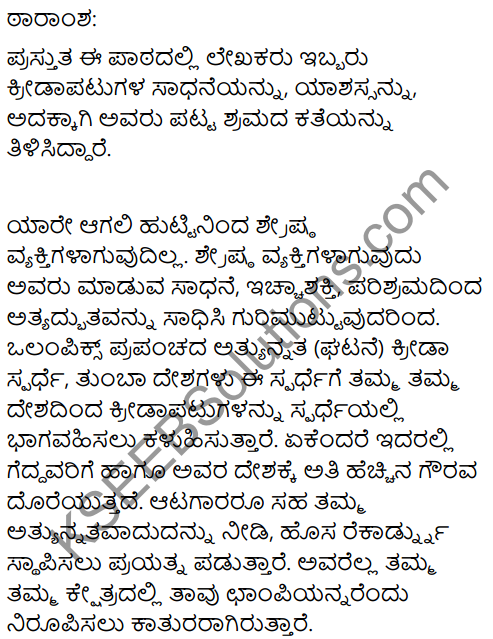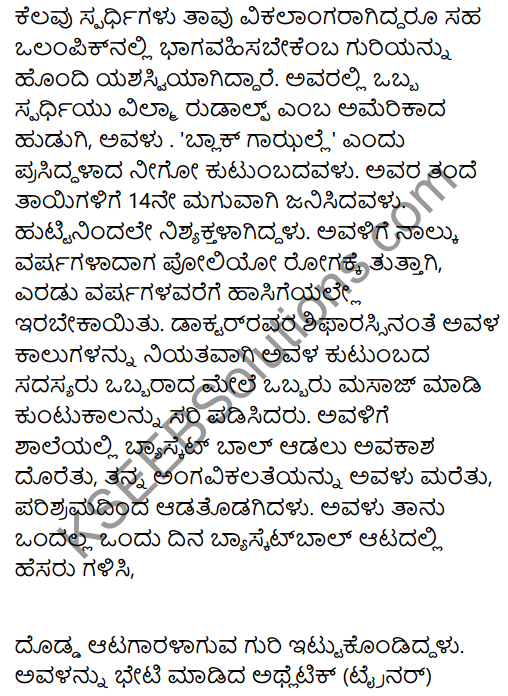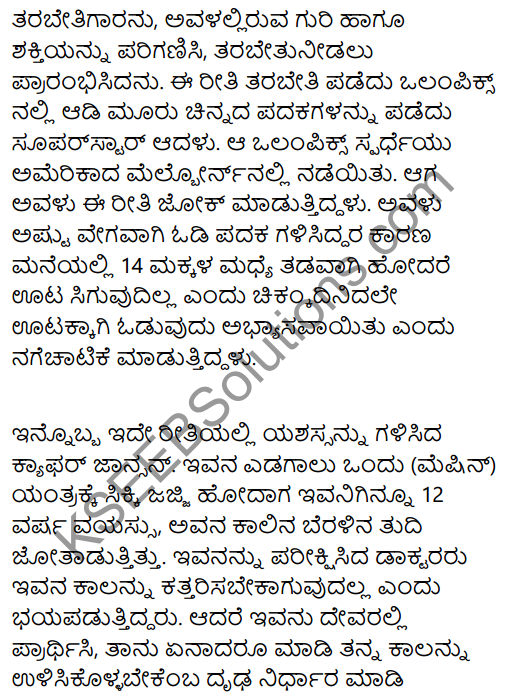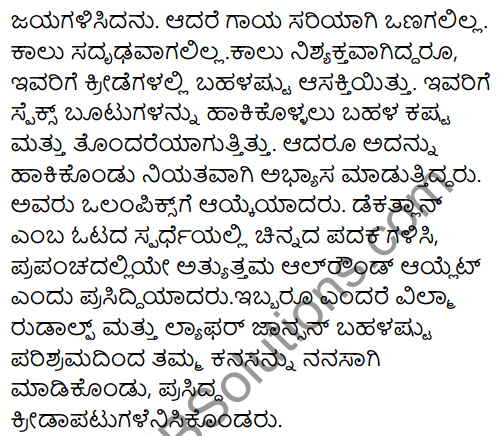KSEEB Solutions for Class 6 English Poem Chapter 1 The Rainbow Free PDF Download is available here. Karnataka State Board Class 6 English are prepared as per the Latest Exam Pattern. Students can prepar these English Chapter 1 The Rainbow Questions and Answers, Summary, Notes Pdf, KSEEB Solutions for Class 6 English Karnataka State Board Solutions and assess their preparation level.
Karnataka State Board Class 6 English Poem Chapter 1 The Rainbow
Prepared as per the KSEEB Solutions for Class 6 English Poem Chapter 1 The Rainbow can be of extreme help as you will be aware of all the concepts. These Karnataka State Board Class 6 English Chapter 1 The Rainbow Questions and Answers pave for a quick revision of the Chapter thereby helping you to enhance subject knowledge.
The Rainbow Questions and Answers, Summary, Notes
Answer the following questions:
Question 1.
Boats, ships, and clouds are all pretty. Which is the prettiest among them?
a. boats
b. ships
c. clouds
Answer:
c. clouds
Question 2.
What does the bow do?
a. builds a road from earth to sky
b. bridges heaven and earth
c. both a and b
Answer:
c. both a and b
Question 3.
What is much prettier than the bridges on the rivers?
a. the rainbow that bridges heaven and earth
b. boats that sail on the rivers
c. ships that sail on the seas
Answer:
a. the rainbow that bridges heaven and earth
Question 4.
In the second stanza of this poem, what does the poet compare the rainbow to?
Answer:
The poet compares the rainbow to a bridge that builds a road from earth to sky.
Let’s Appreciate:
Question 1.
Find words in the poem that rhymes with ‘seas’.
Answer:
Seas – these – please – trees
Question 2.
Draw a picture illustrating the theme of the poem.
Answer:

Question 3.
Could you try to translate this poem into your mother tongue?
Answer:
Self – assessment
Question 4.
Have you seen a rainbow? What are the different colors we find in a rainbow?
Answer:
Yes, I have seen the rainbow. The different colors are violet, Indigo, Blue, Green, Yellow, Orange and Red.
Question 5.
Expand the following letters to get the names of colors in a rainbow.
Answer:
- V – Violet
- I – Indigo
- B – Blue
- G – Green
- Y – Yellow
- O – Orange
- R – Red
The Rainbow Summary in English

The given poem The Rainbow’ is penned by the English poet Christina Rossetti. She has written a variety of romantic, devotional, and children’s poems.
In the given poem, The Rainbow’ the poet describes the Rainbow comparing it to a bridge to heaven. The poet says that it is pretty beautiful to watch the boats sailing in the rivers and the ships sailing on the seas. But the clouds that sail across the sky are for prettier than these.
There are many bridges on the rivers that are built very artistically. But the bridge that catches the eye of the poet is the bow that bridges heaven. This bridge looms over the treetops and builds a road from the earth to the sky, i.e, the beautiful ‘rainbow’. This beautiful bridge. The Rainbow’ is far prettier than all the other man-made bridges.
The Rainbow Summary in Kannada
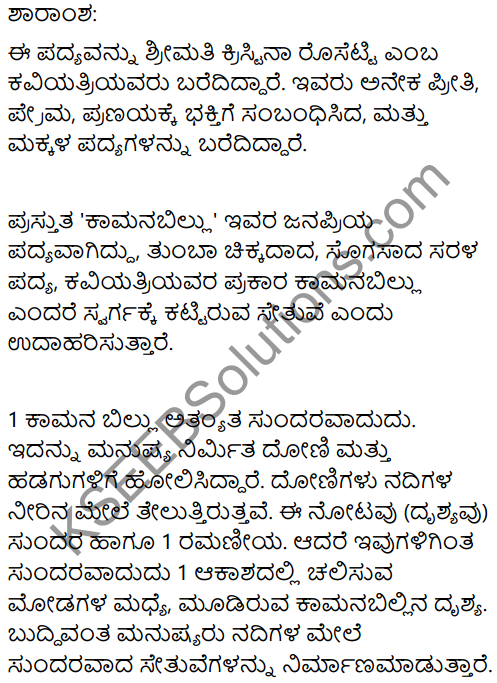
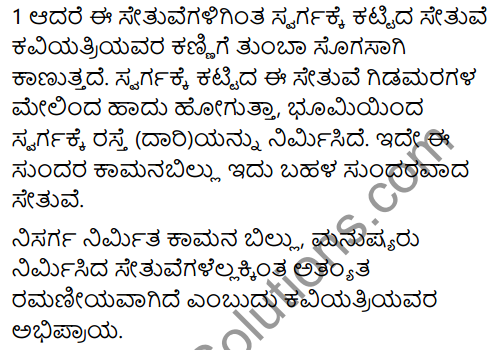
Glossary:
sail: travel in a boat or ship
bow: something that is in the shape of the letter ‘u ’
bridge(v): connect
overtop: rise above
Hope the information shared regarding KSEEB Solutions for Class 6 English Chapter 1 The Rainbow Questions and Answers is true and genuine as far as our knowledge is concerned. If you feel any information is missing do react us and we will look into it and add it accordingly.
